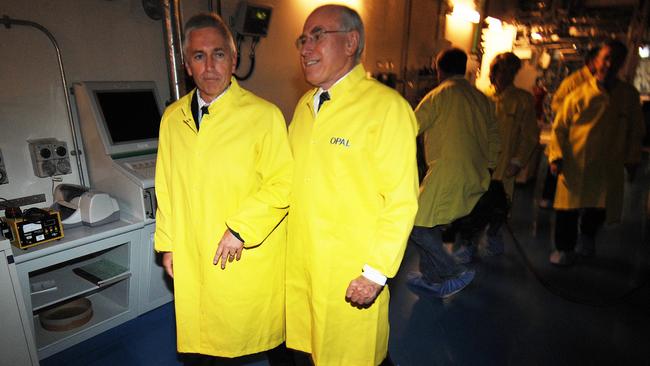Australia is on the verge of a power price crisis driven by self-interest and empty promises from state and federal politicians | Paul Starick
The “public policy disaster” the Premier warned of this week is actually far, far worse than he says, writes Paul Starick.
Opinion
Don't miss out on the headlines from Opinion. Followed categories will be added to My News.
Skyrocketing power prices and the ongoing risk of blackouts in the national electricity grid are more than just the “real public policy disaster” described by Premier Peter Malinauskas.
It’s far, far worse.
The crisis is a catastrophic betrayal of the Australian people by the ruling class – the political leaders who are supposed to represent the public interest.
Households and businesses are slammed harder and harder, paying exorbitant prices for electricity supplies that cannot even be guaranteed.
The blame must be sheeted home to state and federal politicians.
They have wasted billions of dollars and spent more than 25 years fighting in a quagmire of naked political self-interest, blind ideology, stifled innovation, stupendous indecisiveness and misguided decisions.
Lofty promises of cheaper, more reliable electricity have melted like the snowflakes who have made them.
Instead, there is a real sense of crisis – a crunch point has been reached beyond which households and businesses can go no further. It’s high time politicians started acting in the public interest, rather than their own.
Look at the past few days. On Tuesday, The Advertiser revealed iconic South Australian firm Nippy’s power bill had doubled within a year, to $109,580.10 in July.

On Thursday, authorities warned blackout risks were intensifying in South Australia for the next three years and emergency reserves were being sought across three states to ensure supply.
This triggered a warning that there was “a lot of work to do to keep the lights on” from Ai Group chief executive Innes Willox, who represents more than 60,000 businesses employing more than one million staff.
He argued the economy would grind to a halt if Australia failed to replace old coal plants before they fell over.
In diagnosing the cause of this catastrophe, Mr Malinauskas was partially correct at The Advertiser’s Bush Summit on Wednesday. He lashed the policy failure of “an energy-rich country that exports power to the rest of the world paying a higher domestic power price than the very countries that we are exporting our own energy to”.
“If you ask me, I think that the creation of the National Electricity Market (in 1998), combined with the privatisation of the electricity market, has been a real public policy disaster,” Mr Malinauskas said.
The 1999 privatisation of state-owned electricity utility ETSA remains deeply unpopular.
Back then, there were promises that SA householders would be big winners from competition from 2003, when numerous retailers would compete and drive down prices – just as had happened with mobile phones.
Instead, an influx of renewable energy – household solar panels, wind farms and batteries – has been bolted on to a system designed last century.
At the same time, politicians have been arguing endlessly over energy and climate change, resulting in the farcical situation described by Mr Malinauskas – that overseas countries pay less for the energy we export.

Perhaps prices might have been lower if John Howard’s 2007 push for nuclear power had succeeded.
Seven years later, in 2014, the-then shop assistants’ union leader Peter Malinauskas called for a mature debate and said: “I believe climate change is a real challenge we need to face up to, and nuclear energy can be a safe source of base load power, with zero carbon emissions.”
A decade on, Labor unilaterally declares nuclear as uneconomic despite refusing to test the market by removing an atomic energy ban.
Yet it condemns the Coalition for deterring investment by fuelling ongoing uncertainty.
Conversely, Opposition Leader Peter Dutton in June unveiled plans for seven nuclear power plants, arguing this would drive down electricity prices. But he said the cost had not been calculated.
Until a proper costings are done, this is just another of a string of empty promises.
In an energy-rich country, the last thing we should be arguing about is power prices and supply.
But don’t hold your breath for a solution any time soon.






